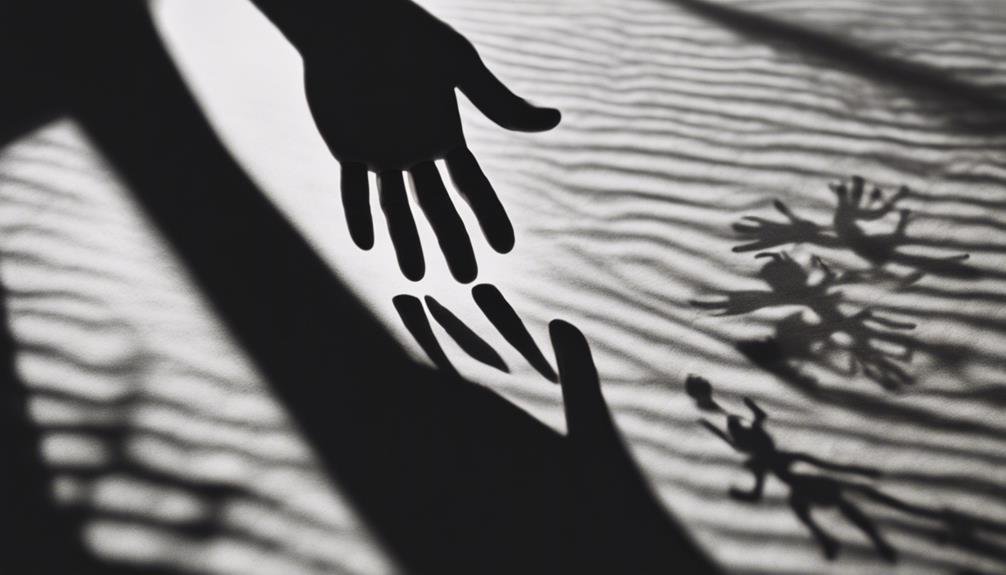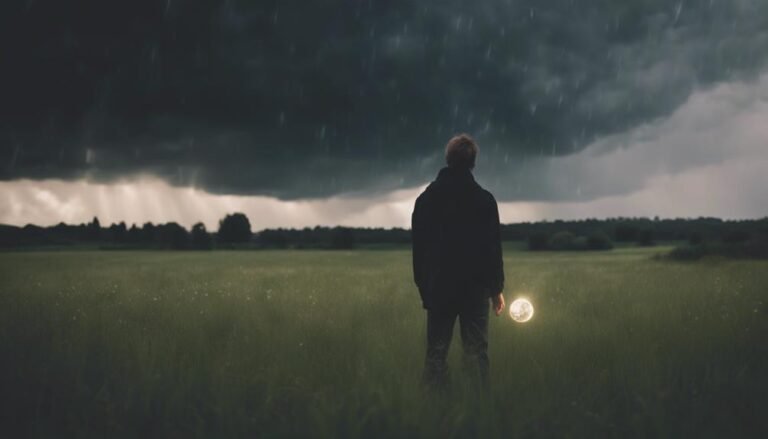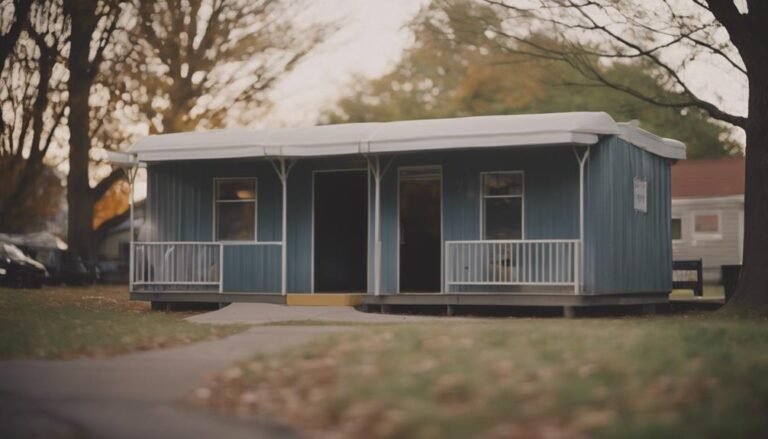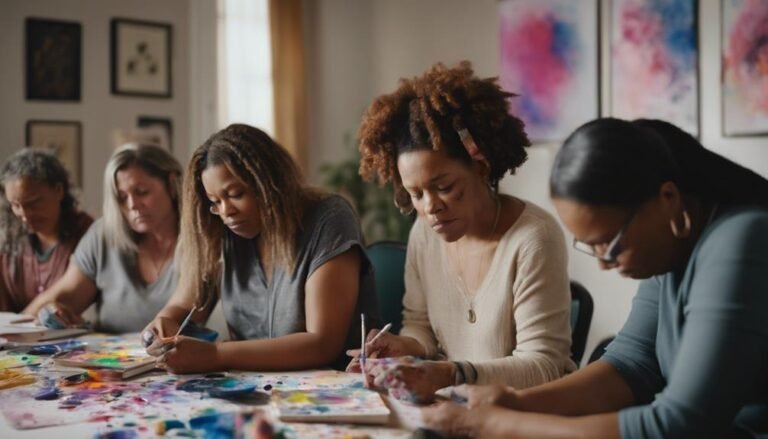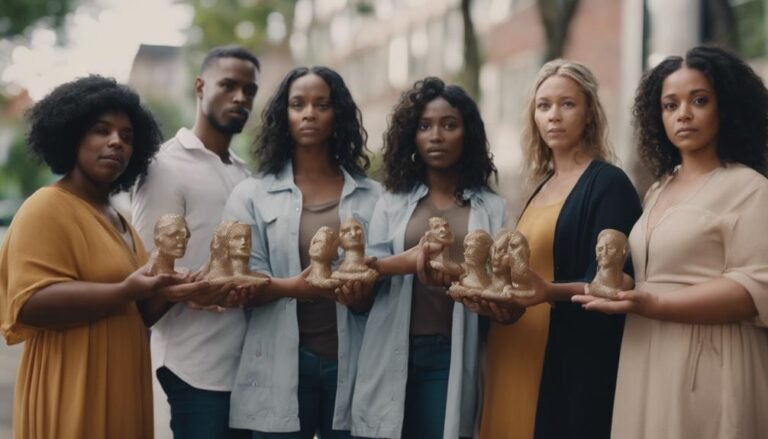Growing up, I felt lost and hurt, grappling with unspoken pain. In a letter to my mother, who didn’t shield me from abuse, I reveal the scars of my past. The memory of early love clashes with the silence that followed my revelation, a wound that still aches within me. But amidst struggles with mental health and identity, I unearthed fragments of self-worth and began a journey towards closure—an arduous path paved with forgiveness and acceptance. This letter holds the untold tale of resilience and healing, a narrative waiting to unfold.
Key Takeaways
- Expressing hurt and betrayal for not being protected.
- Sharing impact of abuse on mental health and identity.
- Seeking closure and understanding through forgiveness.
- Acknowledging lingering pain and seeking healing.
- Holding onto hope for future acceptance and healing.
Childhood Memories of Love and Betrayal
In my early years, I basked in the warmth of my mother’s love, creating hazy but cherished memories of happiness and security. However, this cocoon of love was shattered when I faced emotional turmoil at the age of five.
Trust shattered as I confided in my mother about the abuse from my grandad, hoping for protection and comfort, only to be met with inaction and silence. The feeling of abandonment and confusion lingered, casting a shadow over my once idyllic memories. This betrayal marked the beginning of my emotional struggles, leading to years of depression and the development of eating disorders.
Despite this pain, I hold onto a glimmer of love for my mother, hoping for closure and acceptance in the future.
Struggles With Mental Health and Identity
Amidst the tumult of my emotional journey, I grappled with the weight of my mental health challenges and the quest for my true identity. Coping with years of depression and the development of eating disorders became my daily battle.
However, through this struggle, I began a journey of self-discovery. I found solace in therapy, journaling, and mindfulness practices as coping mechanisms. These tools not only helped me navigate the darkness but also assisted me in revealing layers of my true self.
Despite the pain, this process of self-discovery has brought moments of clarity and understanding. It has been a challenging path, but one that has allowed me to gradually piece together fragments of my identity and reclaim my sense of self-worth.
Seeking Closure and Moving Forward
Moving forward from the pain and struggles of the past, I’m determined to start a journey towards closure and pave a path towards healing and acceptance.
Beginning on this healing journey, I understand that forgiveness is a process, not an event. It involves acknowledging the hurt, anger, and disappointment, and then gradually releasing these emotions to make space for peace and understanding.
As I navigate through this forgiveness process, I remind myself that it isn’t about excusing the wrongs done but about freeing myself from the burdens of resentment and moving forward with a lighter heart.
Frequently Asked Questions
How Did the Mother Justify Her Lack of Action Against the Abuse?
Mother’s perspective on justifying actions against abuse remains elusive. Emotional repercussions led to trust issues. Understanding her reasoning could aid in healing wounds. I empathize with the pain caused and seek resolution through understanding.
Did the Daughter Ever Confront Her Mother About the Betrayal?
Confronting my mother about the betrayal felt like unraveling a tightly wound thread of emotions. Seeking closure, I approached her with a mix of fear and hope, craving understanding and healing in our fractured relationship.
What Impact Did the Mother’s Inaction Have on the Daughter’s Trust?
The mother’s inaction shattered my trust. Betrayal left deep emotional scars, hindering my healing process. Trust issues linger, impacting relationships. Understanding her silence is essential for my growth and forgiveness.
How Did the Daughter Cope With the Emotional Trauma Without Her Mother’s Support?
Coping without my mother’s support was tough. Therapy sessions and self-care became my lifelines. Building resilience, I learned to heal and grow. Despite the pain, I aim to be a better parent.
Did the Mother Ever Acknowledge Her Failure to Protect Her Child?
In my healing process, I wonder about my mother’s perspective. Has she ever acknowledged her failure to protect me? Despite the pain, I hold onto hope and work towards emotional closure.
What Are the Signs That a Mother Didn’t Protect Her Child from Abuse?
There are clear red flags that can indicate traits of abuser behaviors in a mother who didn’t protect her child from abuse. These may include dismissing the child’s complaints, blaming the child for the abuser’s actions, and minimizing or denying the abuse. Additionally, the mother may fail to seek help or support for the child.
Conclusion
In the journey towards healing, I've come to understand the complexities of forgiveness and closure. Despite the pain and trauma, I'm resilient and hopeful for a brighter future.
One in four women have experienced severe physical violence by an intimate partner in their lifetime, highlighting the prevalence of abuse and the need for support and understanding.
Let's continue to advocate for healing, compassion, and empowerment for all survivors.

